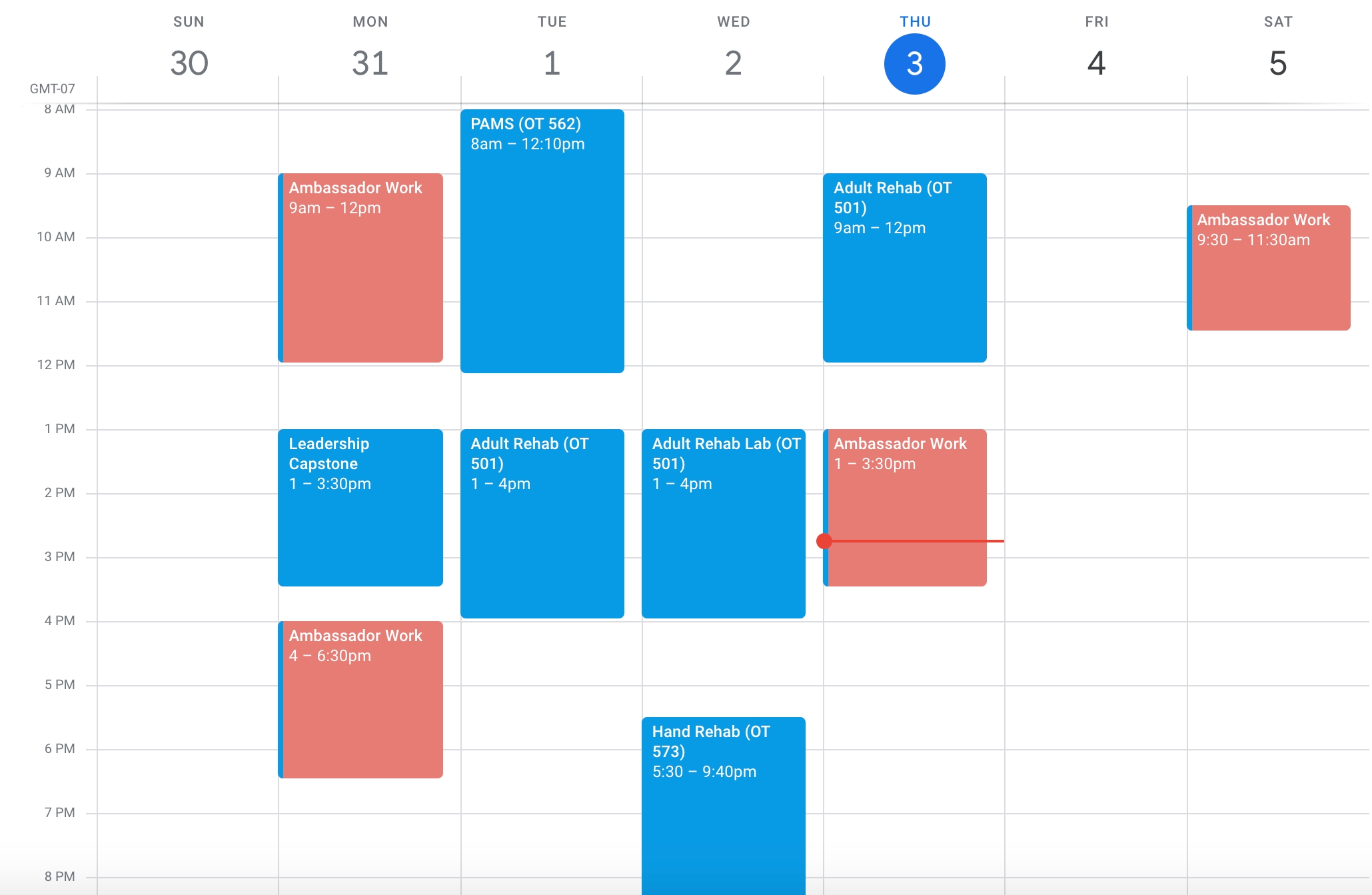Student Blog
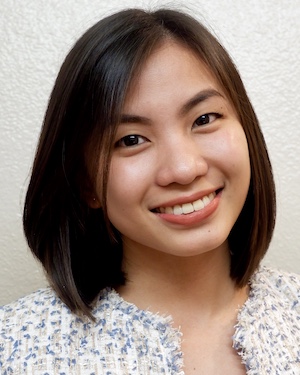
Love is sweeter the second time around ⟩
September 4, 2020, by Yna
The first time I fell in love with OT was more than 7 years ago (I can’t believe it’s already been that long!). Right from the beginning, I always knew I wanted to have a career in a healthcare-related profession, but I wasn’t sure which field in particular. I entered the Occupational Therapy program with plans to continue on to medical school right after I graduate. However, as I got to know more about OT, I inevitably fell in love with it and felt that I actually was meant to be there. I then explored diverse practice settings as an OT intern and later on a licensed practitioner—pediatric development, adult physical rehabilitation, community-based rehabilitation, geriatrics, and mental health. Each interaction I had with a client was a unique and humbling experience that has served to prove the many ways that OTs can make a difference in our clients’ lives. The famous saying “OTs add life to years, not just years to life” indeed holds true.
Fast forward to several years later, I found myself choosing OT yet again, this time as a graduate student of the Post-Professional Master’s program. I must admit that I initially had my inhibitions about going back to school, but thanks to the efforts of Dr. Danny Park and the whole Global Initiatives team, the transition couldn’t have been smoother. Early into the program, I already got a sense of how expansive USC Chan’s curriculum is when I was presented with a number of choices for my elective courses—some of which I didn’t even know existed! Right then and there, it felt as though I was being introduced to OT once again as I saw a whole new set of possibilities unravel for my future career path. It is for this reason that I can firmly say, I’ve made the right choice. USC Chan definitely gave me more reasons to fall in love with OT the second time around.
⋯
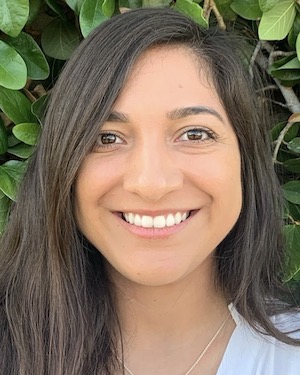
What Might My Schedule Look Like? ⟩
September 3, 2020, by Liz
There’s so much that comes to mind when asking yourself, “what’s grad school like?” What will my schedule look like? Will I have time to do things I enjoy outside of school or is it super intense? Will I be able to work while enrolled in the program? Will I be able to take care of additional responsibilities? I wanted to share a little bit more about that through this post. To start off, here’s my Google calendar!
This reflects what my schedule looks like as a second year student. The pink squares are the times I am at work and the blue squares show when I am in class. The Hand Rehabilitation and PAMS courses are both the electives I chose for the semester. So, the schedule may look a little different for other students depending on their elective choices.
As you can see, for the most part my days start at about 9 AM, with 8 AM being the earliest. I am not really a morning person, however as I shared in one of my previous blog posts I took Lifestyle Redesign over the summer. Well, one of my goals while taking that elective was to switch my workout routine from the evening to the early morning in order to have more time to do other things later on in the day. Yes, it was definitely a struggle to try and do this, but staying active is something that is important to me! Anyway, I usually wake up at about 6:30 AM on Mondays and Wednesdays to get a little exercise in before class. I also work out on Friday and Sunday mornings, but wake up a bit later on those days to get some sleeping in. On the days that I do not exercise in the mornings, I wake up about an hour before class starts to make breakfast, tidy up my room, and get ready for class. So, be ready to start the day early in order to make it in time!
It’s only been two weeks since the fall semester started, and I already have a lot of readings to do for adult rehab. Adult rehab is one of the three practice immersions offered in our program. I’ve successfully completed pediatrics and mental health, so now I am tackling the final immersion! We have a quiz every week, which is first taken individually and then with our group. It’s important to get these readings done in order to be prepared for the quizzes, but also to get the most out of the learning experience. In addition to those readings, I also have readings for my other classes to get through.
As you can see from my calendar, I have Fridays and Sundays entirely free. I am also free Saturdays after 11:30 AM. I do most of my work during the weekend, but I also do some work during the week so as not to overwhelm myself. I would say I engage in roughly about 10 hours a week of study time. This includes reading for classes, any sort of presentation I have to work on, writing papers, reviewing class material and working on asynchronous assignments. This may sound like a lot, but it is doable. I will say, grad school is not like undergrad where you can maybe get away with not doing the readings! I find that actually reading for class has made me feel so much more prepared to engage during lecture and also to ask questions. Although I spend a lot of time doing stuff for school outside of class, I make sure to give myself little breaks throughout the day!
As far as work goes, as a student ambassador I am currently working 10 hours a week. Luckily, the job is very flexible. For example if I needed extra study time on Monday to review for an exam for Tuesday morning’s PAMS class I can shift my work time over to Friday. As I mentioned earlier, there is a lot of time that goes into studying during the week in addition to attending class. So, I think working while enrolled in the program is doable if your job is flexible and won’t interfere with schoolwork. I wouldn’t recommend working any more than 10 hours a week so that you don’t overwhelm yourself. But again, no one knows you better than you do and only you know what you can handle! If money is a huge stressor, there are several scholarship opportunities available within the Division, USC, and through outside sources that can help lift a little bit of that financial stress. There are also student worker positions available that can also help.
When I am not in class my schedule does allow me to spend time with the people I love! My partner and I enjoy ordering Shake Shack for dinner and watching movies. I also have time to visit my parents and my younger sister for a few hours during the weekend. I am also able to spend some time outside, watch Netflix, and hang out with my roomies. And as an update, I did get a new roomie, Max, who I am completely obsessed with! Here he is ready to take on the UCLA football team!
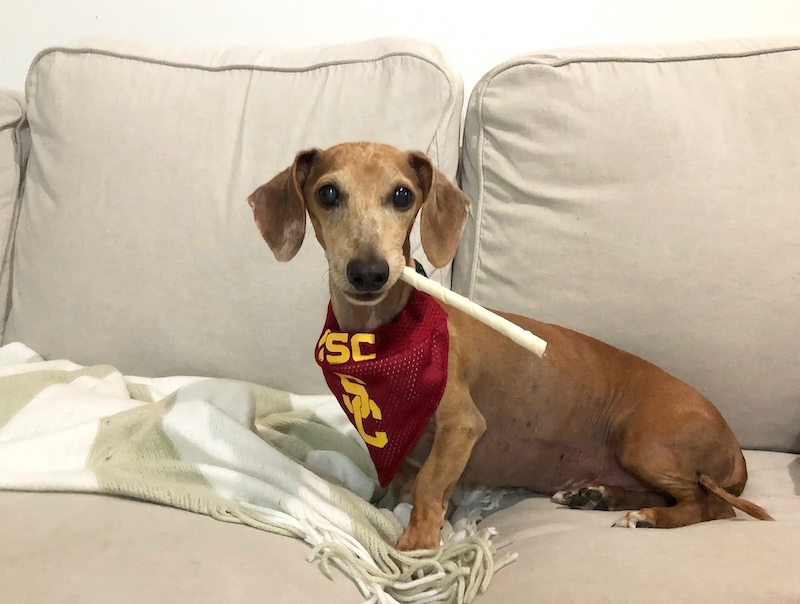
So, to wrap things up, definitely expect to put in a few hours into studying outside of class. You really do get what you put into it! But, also keep in mind that there’s time for you to do the things you love. It’s all about time management and really planning out your week/month in advance. You can do this!
⋯
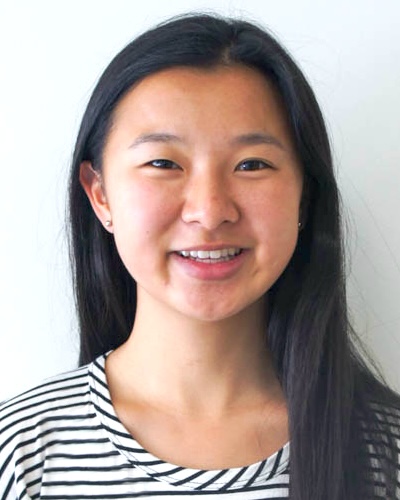
An Interview with Hand Therapist Lisa Adams ’81 ⟩
September 2, 2020, by Bethany
I was recently able to contact one of the practitioners that introduced me to occupational therapy. I shadowed Lisa Adams, a Certified Hand Therapist, for a summer as she worked. Lisa is also a USC Chan ‘81 Alumnus. Through her understanding how a person’s use of their upper extremities affects their daily activities, I fell in love with OT. I was able to email her a few questions about her profession, and she shared a little bit about her experience.
Lisa Adams (LA): Hi, my name is Lisa Adams, and I have been an OT for a very long time: forty years.
Bethany Yew (BY): We have to start with the question: Why OT?
LA: I loved the psycho-social aspect and treating the patient or client as a whole. Even though hand therapy has a lot of medical based components it also addresses all the occupational roles of the client. As an OT I have a vested interest in computer ergonomics, and thus I can advise and evaluate patient’s workstations to alleviate their hand problems . . . OTs lucked out in having splinting skills as well as being able to respect the tiny anatomical structures of the hand in the rehab process. This is why, the surgeons I worked for originally, chose an OT over a PT to work in their clinic. I am a Certified Hand Therapist (CHT). This certification can be earned by either an OT or PT after working 3 years as a general therapist with hand experience and passing the CHT exam. 80% of CHTs are OTs.
BY: How did you decide to do hand therapy?
LA: I started out as a COTA working for two hand surgeons, in their hand clinic run by an OTR. I was kind of thrown into hand therapy in the late 70’s not knowing what it was. I was sent on the interview while doing my COTA internship at Rancho Los Amigos Hospital. After working in the neuro unit at Rancho with head trauma and Guillain-Bare patients I couldn’t fathom why a hand injury would need specialized therapy. Well, I learned differently. Originally, I thought I’d work there for 6 months, but I ended up working at the LA Metropolitan Hand Center for 22 years. The surgeons had me go to surgery with them and watch procedures which enable me to learn more than I could have ever hoped for. The surgeons urged me to go back to school (I went to USC.) and become an OTR, which I did after working 5 years as a COTA. I returned to work for them for the next 17 years.
The clinic was the first hand center in Los Angeles, opening in 1975. Hand therapy was in its infancy as were the surgical techniques. We treated a lot of trauma (stab wounds, finger and hand amputations, tendon lacerations and fractures). We had the luxury of treating our patients for two and three hours in group settings. Each patient got individualized hands-on care, had a therapeutic activity (leather work, macramé or simple wood project) in addition to an exercise program. Those were the good ole days when insurance companies didn’t regulate the reimbursement rates, number of visits and time spent in therapy. It is a different story today, but as an OT I have adapted to provide quality care within the confines of the payers, although not always easy or profitable.
BY: What is the hardest part of your job?
LA: The hardest part of my job is the time it takes to do documentation. We now have EMR systems but they are not all conducive to OT, and I have a difficult time navigating them and making sure I do so correctly. We have many documentation requirements per Medicare, so making sure everything is clear and concise is difficult for me. This is very time consuming and non-revenue producing, so more often than not I am doing my documentation on my time.
BY: What is the best part of your job?
LA: The best part of my work day is hearing a patient say, “Look, I can now bend my finger!” or “I don’t have pain anymore after doing my therapy program.” Witnessing a patient’s recovery is the best part of every day. I also love when I can help a patient through the emotional roller coaster of having pain and having limited functional use of their hand. When I hear a patient say, “Thank you for listening or putting up with my crying” it’s the best part of my day.
BY: Thank you so much for sharing.
I am so thankful that I got to get back in touch with Lisa. When I had finished volunteering, she gave me a cute candle as a reminder of my experience.
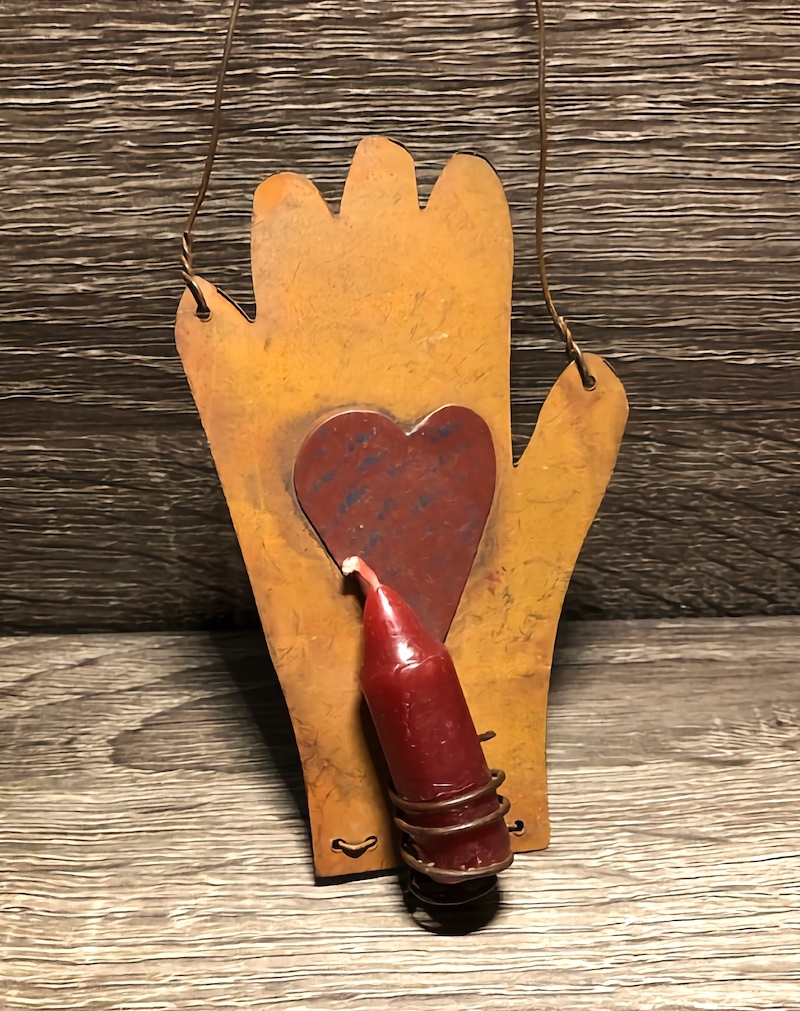
A “handy” candle
I will always be thankful for her impact on my introduction to OT and how it can change people’s lives.
⋯
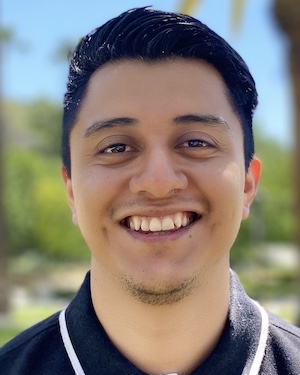
5 Things I Wish I Knew Before Applying to USC Chan OTD Residencies ⟩
August 31, 2020, by Daniel
This is a time when many of you may be wondering what to do in regards to OTD Residencies. Should I apply to the USC Chan Residencies, should I wait, perhaps it’s best to go into the work field right after graduation, so many things to think about. Regardless of where you find yourself, the deadlines will come and you will have to make a decision. And I understand that feeling of having to make life decisions in a matter of months/weeks, as I was in your shoes exactly a year ago. There is a lot to consider when applying to the OTD, whether it’s finances, time commitment, residency options, etc. Everyone’s experience is very different, and hopefully the following tips can help you or someone you know that is applying to USC Chan OTD Residencies.
1. Start Your Resume Early
If you have not updated your resume in a while, then now it’s the time! I would recommend you start putting together your resume and updating it early in the semester before it gets busier. Get other people to review your resume! This will be very helpful to catch things you may have missed and get a different perspective on the information presented on your resume.
Below are some helpful tips:
Resume Checklist
- No spelling, grammar, or punctuation errors
- 1-2 pages
- Make it organized, concise, and easy to read
- Use standard fonts (i.e., Times New Roman, Arial, Century, Helvetica, or Verdana
- Font size 10, 11, or 12
- Quantify accomplishments, if possible (i.e., funds raised, timespans, percentages, etc.)
- Utilize accomplishment statements (i.e., action verbs, how you did it, results)
Resume Format Guidelines
- Contact Information
- Education
- Experience
- Leadership and Activities
- Professional Associations
- Additional Information
- For additional information and tips, I highly recommend you check the USC Career Center resume resources.
2. Interview Preparation
Research your OTD Residency & site:
- Know the site’s mission and the goals of the residency (if available)
- Read their website
- Read any published materials and/or presentations
- Follow their social media (if available)
- Reach out to faculty/staff associated with a particular OTD Residency
- Talk to current and/or former OTD Residents
- Talk to classmates that had fieldwork at a particular site
Prepare questions for the interviewer:
As you learn more about each residency, write down questions you may have and ask them prior to applying or during the interview. This is a great way to show that you are informed and genuinely interested about the work they are doing! This will also help inform you if this would be a good fit and something you want to pursue!
Practice interview skills:
- Practice with someone who can give you feedback (i.e., friend, classmate, mentor, etc.)
- Practice articulating your thoughts
- Practice via Zoom! Get comfortable doing virtual interviews
- The USC Career Center offers additional resources to prepare for in-person and video interviews! They have an online mock interview platform to record yourself responding to pre-recorded prompts and questions to get an idea of how you appear on camera in an interview setting.
There are many questions they can ask you, so focus on big picture ideas that highlight your level of interest/commitment and your ability to handle the demands of the residency position:
- Why do you want to pursue the OTD?
- Why did you decide to pursue a career in OT? (I know this question may feel repetitive, but it’s always good to highlight your passion for wanting to be an OT).
- Do you have a story or personal connection to the residency that has led you to be so passionate about this type of work.
- What skills have you obtained as a Master’s student that will help you excel as an OTD Resident?
- What do you hope to gain from the OTD? What are your goals?
3. Your OTD Residency Does Not Define Your Career Path
Choosing to pursue the OTD is already a tough decision, and choosing a particular residency can be even more difficult! As you are looking through the different options available, I just want to remind you that choosing to do a residency in a particular field does not define where you will end up working after graduation! Sure, your focus will be within that particular field during residency, and it if it leads to a job than even better! But don’t feel like you are unable to pursue other practice areas, remember that every job provides training! There have been OTD residents that graduated and found jobs in a different practice area than their residency. The OTD offers an opportunity to further develop your clinical expertise and leadership skills, to help drive changes across various health and human services organizations.
4. Utilize Your Resources
- Look back at resume and interview resources from other classes such as OT 523 Communication Skills for Effective Practice
- Utilize available USC Career Center Resources via connectSC!
- Contact the OTD Student Ambassador (me) for any questions regarding the OTD.
- Feel free to reach out via email, text, social media, etc. (Email: .(JavaScript must be enabled to view this email address), Phone: (818) 571-8222)
- Lastly, Dr. Amber Bennett and Dr. Sarah Bream are also available to answer any OTD questions
5. Be Excited!
You have made it this far and looking into OTD residencies is stressful but also exciting! There are so many great opportunities you can pursue and places where you can help make an impact. Prepare, be curious, ask questions, and trust yourself! The only thing you can do is try your best and give it your best shot. And no matter what you decide to do or the outcome, every semester you are one step closer to becoming an amazing OT!
⋯
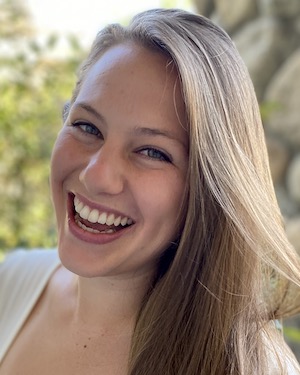
Crafting a Personal Statement ⟩
August 26, 2020, by Savi
During my application process, I wanted to make sure that I would stand out. I spent weeks worrying about what I could do to make the admissions team stop and say “WOW” when reading through the hundreds of applications they received that year. This was stressful, to say the least. I felt as though everyone else applying also had good grades and GRE scores. I volunteered in a variety of clinics, held leadership positions in multiple organizations, and participated in an OT research lab throughout my undergraduate career but I knew that most applicants were also very involved. Despite all these achievements I continued to worry about how I could stand out! What would grab the admission counselor’s attention? I soon realized it would have to be my Personal Statement.
The USC Chan Personal Statement was my time to shine. I spent weeks drafting different ideas about what I thought the admissions team wanted to hear. I spoke about my leadership, my academic success, etc. Each time I would read over the new version I didn’t think it was good enough. After speaking to my sister about my dilemma and having her read over my outline she turned to me and said, “Savi we all know you are successful. Now tell them who you are beneath all the success. Who is Savi and why are you built to be an OT?” This quickly made me realize that I had been spending my time writing a personal statement with the sole purpose of impressing the admissions team. Instead, I needed to focus my energy on finding one story that exemplifies who I am and how I fit into the Chan community.
I deleted my list of achievements and started fresh. I brainstormed ideas of when I had implemented techniques similar to OT intervention in a non-traditional setting. I did this because I wanted to demonstrate that my imagination would benefit me as both an OT student at USC and as a future OT practitioner. I landed on my experience as a Human Resources intern at a start-up tech company after my freshman year of college. During my time at this company, I noticed that employees led a primarily sedentary and ergonomically insufficient work lifestyle. I, therefore, focused my time as an intern on developing an innovative approach to educate and enable the employees on adopting a healthy and ergonomically sustainable lifestyle in the office. I used the company’s core values, personalities, and goals to develop the perfect “interventions” based on their needs, including a wellness competition, games to engage in physical activity, and workshops on how to set up their workspace to promote sustained engagement and success.
Looking back on this internship I realized how aligned my innovation skills were with OT techniques. Naturally, I found myself understanding the importance of exploring clients’ situational context, personality, and environment in order to develop innovative treatment plans that promote engagement in meaningful occupations. This story exemplified that even before I decided to pursue a career in OT I utilized the leadership and career opportunities I had to use my creativity to help others . . . sounds kind of like an OT right!? Was this internship the biggest success I have ever achieved? No. Does everyone else applying also have work or internship experience? Yes. Although the experience of being an intern may seem common and unoriginal, I was able to dive deeper into how I utilized one of USC Chan’s core values to demonstrate who I am and what kind of OT I want to be. So dive deeper into those “regular or unoriginal” experiences in order to demonstrate how you made it extraordinary just by being yourself!
You can find more application advice from our Director of Admissions, Dr. Arameh Anvarizadeh in this video!
⋯






